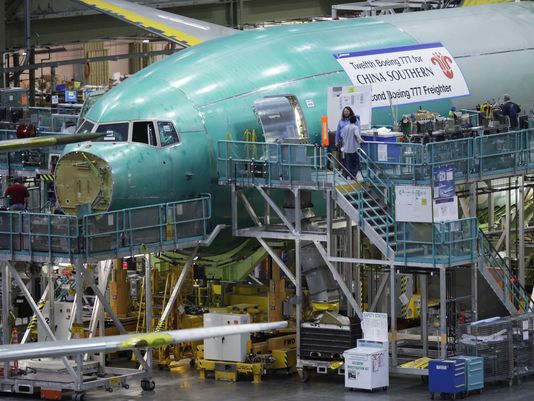Malaysia disaster not expected to tarnish Boeing
The Boeing 777 is one of the safest planes on earth, and the Malaysia Airlines crash Friday should do nothing to tarnish that record -- or that of parent company Boeing -- unless a flaw is found in this incident, business analysts said.
"This is the best international plane ever built yet -- it's got an impeccable track record after 20 years and over 1,200 deliveries," said Richard Aboulafia, vice president for analysis with the Teal Group in Virginia. "It's typically used on international routes and it's established a new standard for international safety."
The disaster in the South China Sea with 239 people aboard is Malaysia Airlines' first crash in nearly 20 years.
The Asiana Airlines Flight 214 crash that killed three people in July also involved a 777, which struck a seawall and broke apart at San Francisco's airport. But National Transportation Safety Board investigators have focused their attention on pilot training and confusion in that incident.
The Malaysia crash also came the same day Boeing announced it found hairline cracks in the wings of 42 Dreamliner 787 planes under construction, but none in the 122 already delivered. The problem arose because a supplier, Tokyo-based Mitsubishi Heavy Industries, changed its manufacturing process, according to Boeing.
MORE: Oil slicks spotted, suspected to be from crashed jetliner[1]
Boeing's stock closed at $128.54 Friday, down 32 cents. It did drop 1.1% to $127.43 in after-hours trading, as reports of the Dreamliner crack surfaced. The stock is up 58% the past year (March 8 to March 8). In January, the company said its fourth-quarter profit rose 26% as it delivered more commercial planes.
Aviation analysts said unless a mechanical flaw is found in the Malaysian incident, there is no reason the crash should affect Boeing at all.
"Absent inherent defects" to the air frame, engines, avionics or other equipment, "the operator is responsible for safe use according to published and approved manuals," said Robert Mann, an aviation consultant with R.W. Mann and Co. in New York.
Boeing issued a statement saying it was assembling a team to offer technical assistance in investigating the crash, and that "our thoughts remain with all on board and their families."
Henry Harteveldt, an analyst with Hudson Crossing in San Francisco, said the plane's "black box" that records data about the flight needs to be recovered and examined along with the rest of the recoverable wreckage.
"Only after investigators can determine the crash's cause will we be able to determine whether there will be any long-term impact to Boeing," Harteveldt said.
The NTSB, which often helps other governments investigate crashes, is monitoring the incident and could potentially send investigators to the scene.
Harteveldt also said the 777 "is one of the safest, most reliable planes – ever" and that the Asiana crash "appears to be a function of pilot error," not the plane.










